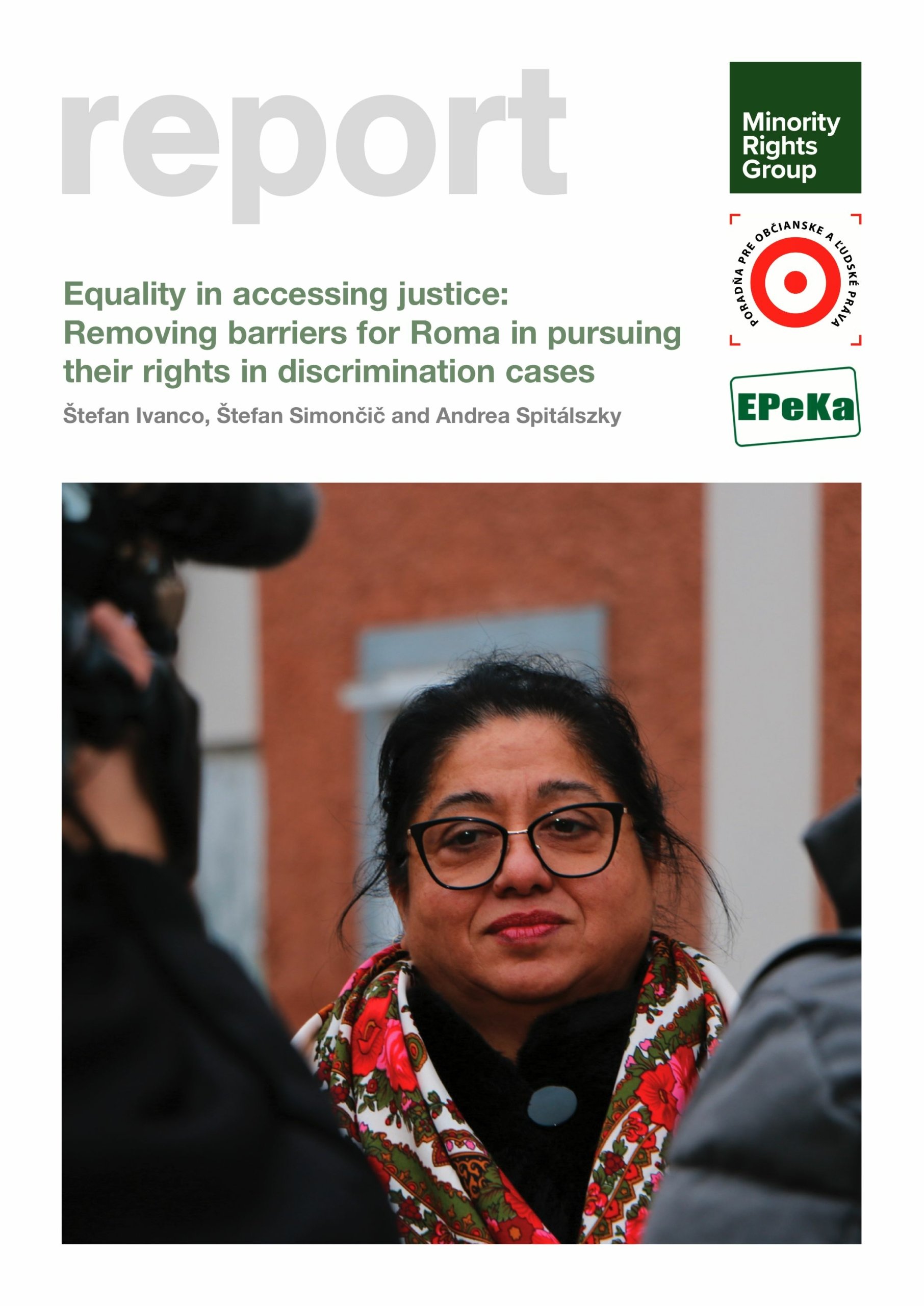
Equality in accessing justice: Removing barriers for Roma in pursuing their rights in discrimination cases
This report provides an overview and insights into discrimination faced by members of Roma communities in Slovenia and Slovakia, and outlines the strategies to provide legal remedies. In addition to raising public awareness of discrimination against Roma people in these countries, this report provides an outline of the outcomes of fieldwork carried out by trained Roma mediators in 2023 in the framework of the ‘Promoting Roma Equality in Slovenia and Slovakia – PRESS’ programme funded by the European Commission and managed by Minority Rights Group Europe (MRGE), the Center for Civil and Human Rights (Poradňa pre občianske a ľudské práva, Slovakia) and EPEKA (Slovenia). Drawing on first-hand accounts of people within various Roma communities, this report provides detailed analysis of a range of discriminatory practices, which expose systemic forms of anti gypsyism in various aspects of public life including the workplace, public transport, education and health, and resumes the legal work conducted by engaged legal professionals.
The report’s insights draw on the practical work conducted through awareness raising and the provision of legal assistance obtained through collaboration with professional lawyers in both countries. These practical lessons could set an important precedent in the process of achieving access to justice for Roma people in Slovenia and Slovakia.
The report also provides invaluable recommendations to authorities and relevant bodies, especially equality bodies in Slovakia and Slovenia. This report will be of interest to legal professionals, advocacy experts, activists, researchers and human rights stakeholders who wish to deepen their understanding of Roma rights in Eastern Europe. The real-life accounts of discrimination vividly described in this report, and the mechanisms outlined here, show that access to justice for Roma communities can be achieved successfully. The proposed recommendations will be of relevance to state authorities seeking to combat discrimination not only in Slovakia and Slovenia, but across Eastern Europe.



